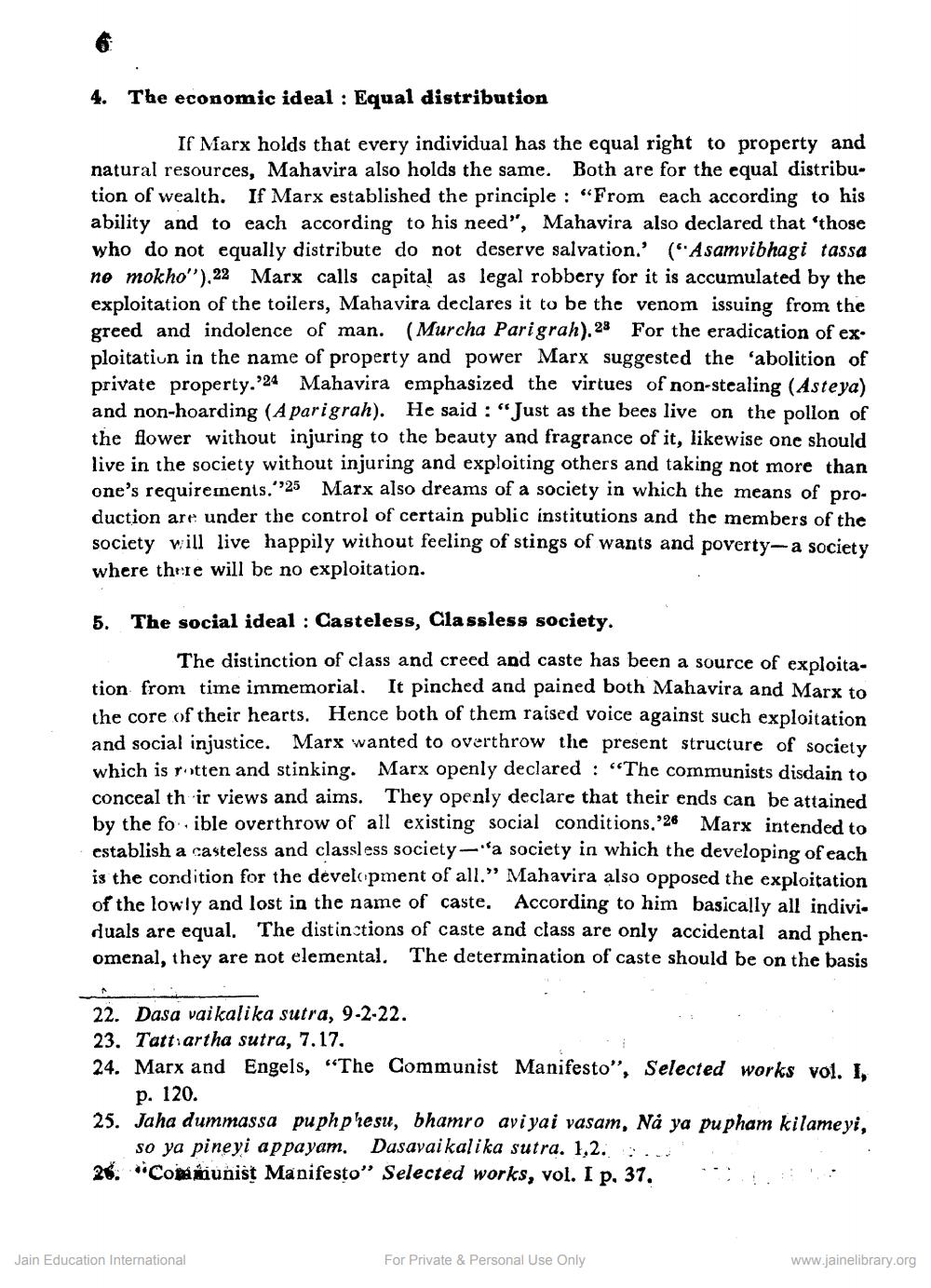________________
4. The economic ideal: Equal distribution
If Marx holds that every individual has the equal right to property and natural resources, Mahavira also holds the same. Both are for the equal distribution of wealth. If Marx established the principle: "From each according to his ability and to each according to his need", Mahavira also declared that 'those who do not equally distribute do not deserve salvation.' ("Asamvibhagi tassa no mokho"),22 Marx calls capital as legal robbery for it is accumulated by the exploitation of the toilers, Mahavira declares it to be the venom issuing from the greed and indolence of man. (Murcha Parigrah), 28 For the eradication of exploitation in the name of property and power Marx suggested the 'abolition of private property.'24 Mahavira emphasized the virtues of non-stealing (Asteya) and non-hoarding (Aparigrah). He said: "Just as the bees live on the pollon of the flower without injuring to the beauty and fragrance of it, likewise one should live in the society without injuring and exploiting others and taking not more than one's requirements."25 Marx also dreams of a society in which the means of production are under the control of certain public institutions and the members of the society will live happily without feeling of stings of wants and poverty-a society where there will be no exploitation.
The social ideal: Casteless, Classless society.
The distinction of class and creed and caste has been a source of exploitation from time immemorial. It pinched and pained both Mahavira and Marx to the core of their hearts. Hence both of them raised voice against such exploitation and social injustice. Marx wanted to overthrow the present structure of society which is rotten and stinking. Marx openly declared: "The communists disdain to conceal their views and aims. They openly declare that their ends can be attained by the foible overthrow of all existing social conditions, '2 Marx intended to establish a casteless and classless society-"a society in which the developing of each is the condition for the development of all." Mahavira also opposed the exploitation of the lowly and lost in the name of caste. According to him basically all indivi duals are equal. The distinctions of caste and class are only accidental and phenomenal, they are not elemental. The determination of caste should be on the basis
22. Dasa vaikalika sutra, 9-2-22.
23. Tatt artha sutra, 7.17.
24. Marx and Engels, "The Communist Manifesto", Selected works vol. I, p. 120.
25. Jaha dummassa puphphesu, bhamro aviyai vasam, Ná ya pupham kilameyi, so ya pineyi appayam. Dasavai kalika sutra. 1.2. 26. Communist Manifesto" Selected works, vol. I p. 37.
Jain Education International
For Private & Personal Use Only
www.jainelibrary.org




